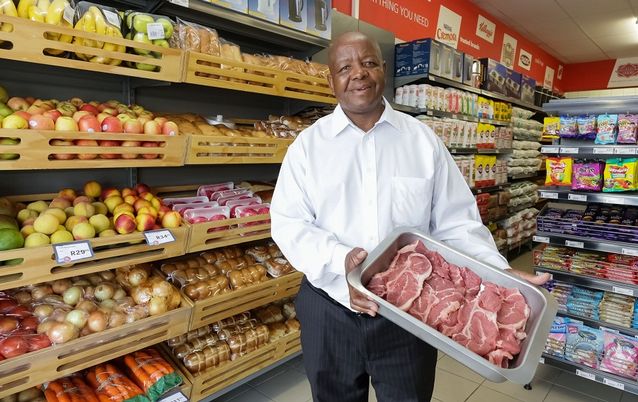Grocery inquiry to cover concerns of township SMEs
by Linda Ensor,
2016-03-15 11:58:07.0
THE grocery retail sector inquiry launched last year by the Competition Commission was very significant and could address issues of food prices and market access, the economic development minister said on Tuesday.
The inquiry was the second initiated by the commission in terms of amendments to the Competition Act, which allows it to proactively conduct investigations. The first one conducted was into the private healthcare industry.
"Over the past decade or more, a number of developments in the retail sector affected township shops and small retail businesses of South Africans, often very negatively," Economic Development Minister Ebrahim Patel said in a written reply to a parliamentary question by African National Congress (ANC) MP Imamile Pikinini.
"For example, national supermarket chains moved aggressively into townships and rural areas, often in newly constructed shopping malls, impacting on the viability of small, informal and independent retailers in a number of ways.
"A study by the Bureau of Market Research in Soshanguve found that half of the informal businesses located near to a new shopping centre closed down and most retailers had a decline in their turnover, profitability, stock movement and product range," the minister said.
Mr Patel said the reason for the grocery retail market inquiry was to consider ways to improve dynamic competition access for small businesses in the retail sector and combat restrictive practices.
The inquiry will look at the effect of national supermarket chains on small and independent retailers in townships, rural areas and the informal economy; the effect of exclusive lease agreements between shopping mall owners and national supermarket chains that often keep smaller retailers out; and the dynamics of competition between local small retailers and foreign-owned small retailers in townships.
Other areas to be examined include the effect of regulations, including municipal by-laws, on smaller retailers and the informal sector; the effect of buyer groups where small shop-owners co-operate on bulk-buying, quality controls or technology to enable them to compete more effectively against larger players; and the prevalence of pricing policies that may discriminate against smaller players in specific product value-chains.

The first spaza-to-store conversion, Monageng Market, is owned and run by Solly Legae. Picture: SUPPLIED
THE grocery retail sector inquiry launched last year by the Competition Commission was very significant and could address issues of food prices and market access, the economic development minister said on Tuesday.
The inquiry was the second initiated by the commission in terms of amendments to the Competition Act, which allows it to proactively conduct investigations. The first one conducted was into the private healthcare industry.
"Over the past decade or more, a number of developments in the retail sector affected township shops and small retail businesses of South Africans, often very negatively," Economic Development Minister Ebrahim Patel said in a written reply to a parliamentary question by African National Congress (ANC) MP Imamile Pikinini.
"For example, national supermarket chains moved aggressively into townships and rural areas, often in newly constructed shopping malls, impacting on the viability of small, informal and independent retailers in a number of ways.
"A study by the Bureau of Market Research in Soshanguve found that half of the informal businesses located near to a new shopping centre closed down and most retailers had a decline in their turnover, profitability, stock movement and product range," the minister said.
Mr Patel said the reason for the grocery retail market inquiry was to consider ways to improve dynamic competition access for small businesses in the retail sector and combat restrictive practices.
The inquiry will look at the effect of national supermarket chains on small and independent retailers in townships, rural areas and the informal economy; the effect of exclusive lease agreements between shopping mall owners and national supermarket chains that often keep smaller retailers out; and the dynamics of competition between local small retailers and foreign-owned small retailers in townships.
Other areas to be examined include the effect of regulations, including municipal by-laws, on smaller retailers and the informal sector; the effect of buyer groups where small shop-owners co-operate on bulk-buying, quality controls or technology to enable them to compete more effectively against larger players; and the prevalence of pricing policies that may discriminate against smaller players in specific product value-chains.






















Change: 0.83%
Change: 0.93%
Change: 0.95%
Change: 0.73%
Change: 1.91%
Data supplied by Profile Data
Change: 0.58%
Change: 0.15%
Change: 0.83%
Change: 0.00%
Change: -0.04%
Data supplied by Profile Data
Change: -1.10%
Change: 0.14%
Change: 0.10%
Change: -0.21%
Change: -0.35%
Data supplied by Profile Data
Change: 0.85%
Change: 0.84%
Change: 0.59%
Change: 1.76%
Change: 2.44%
Data supplied by Profile Data